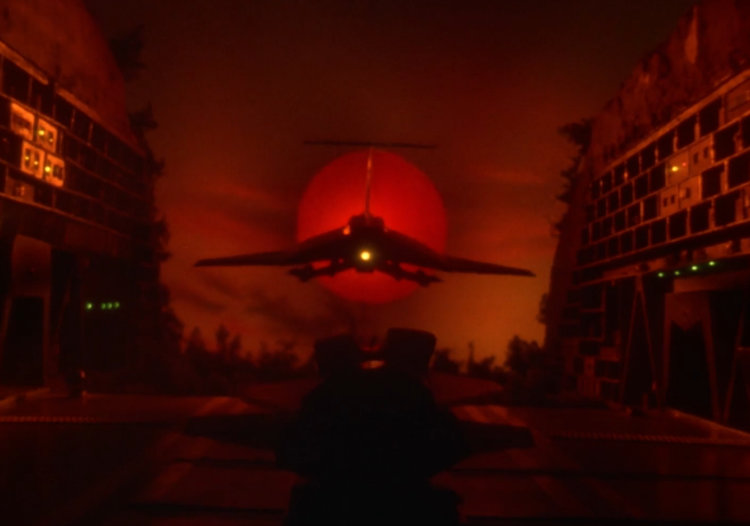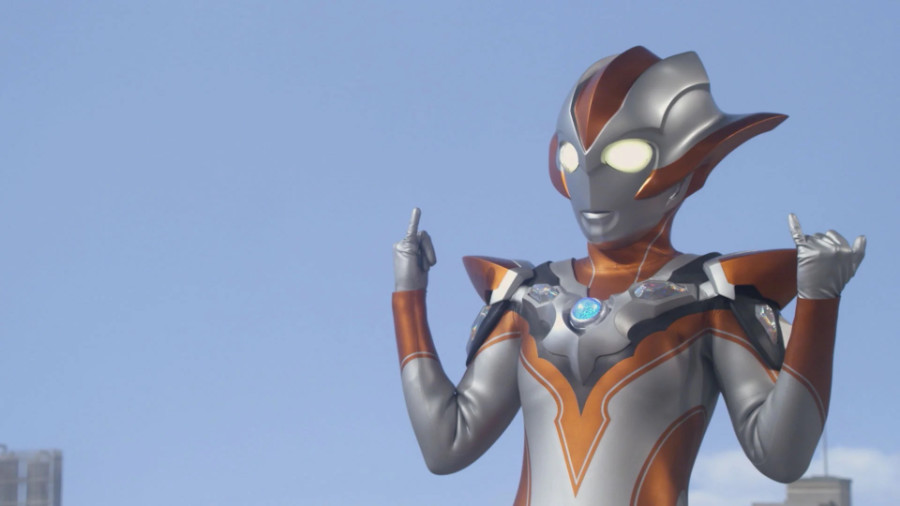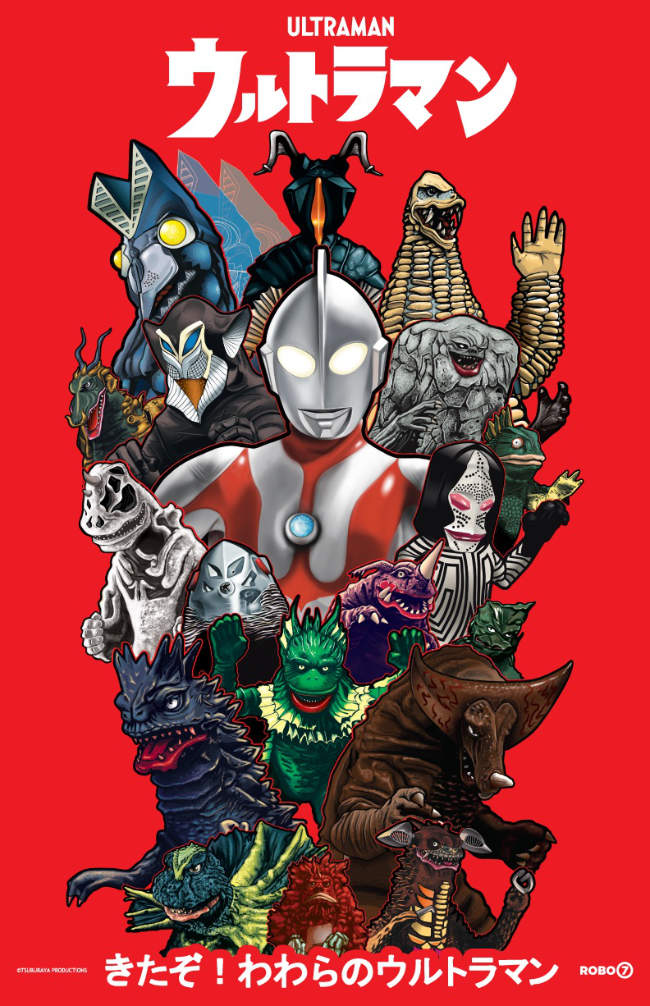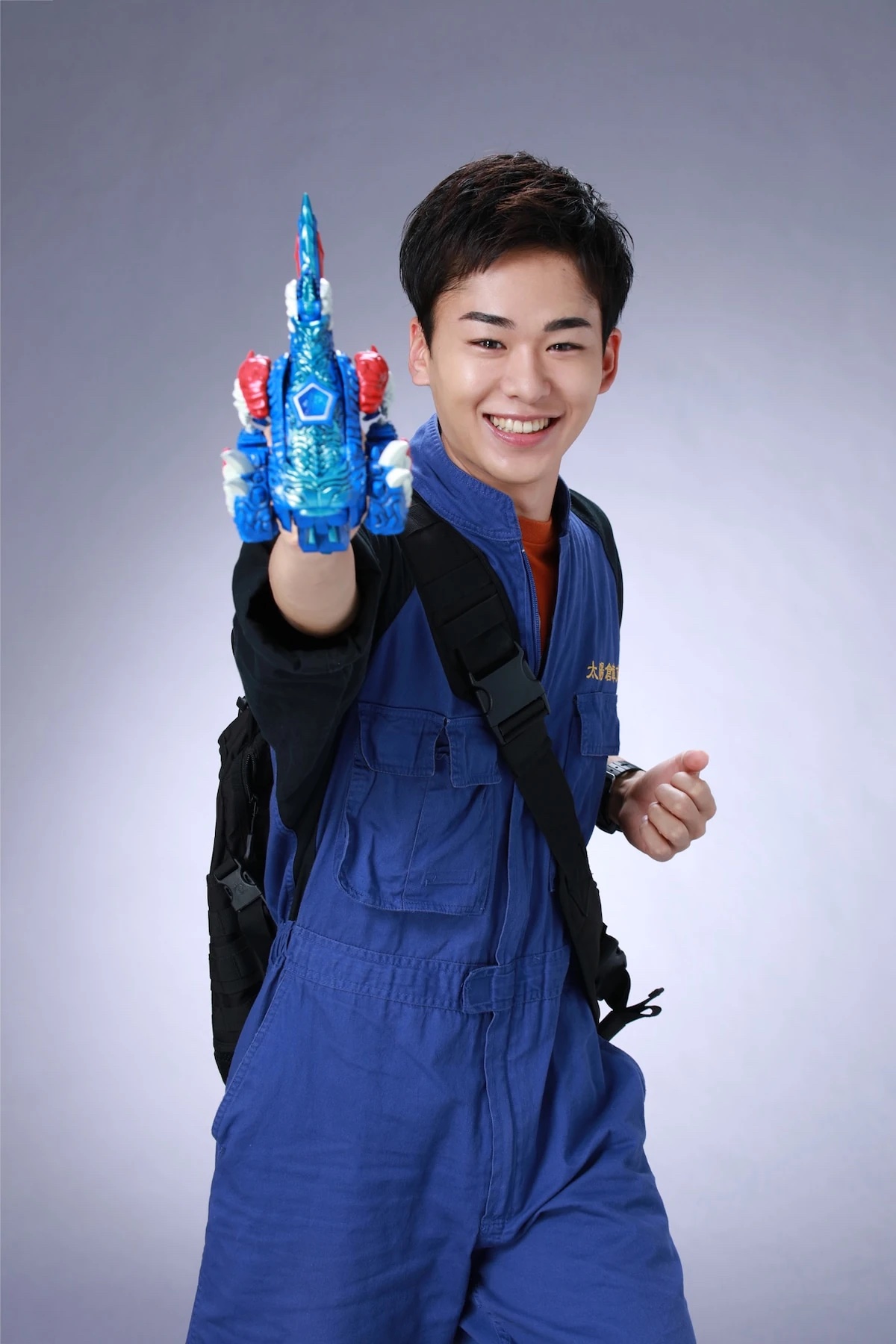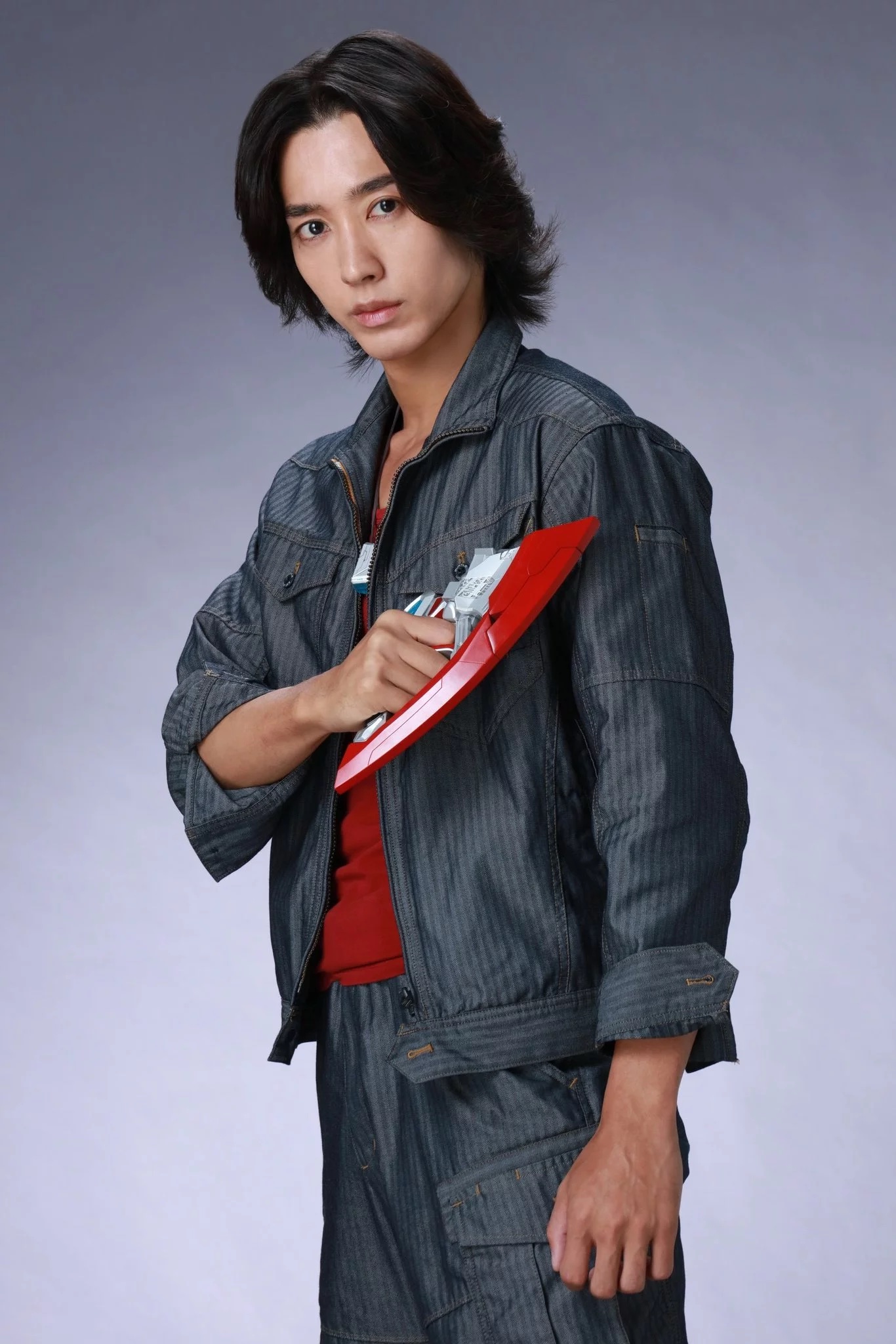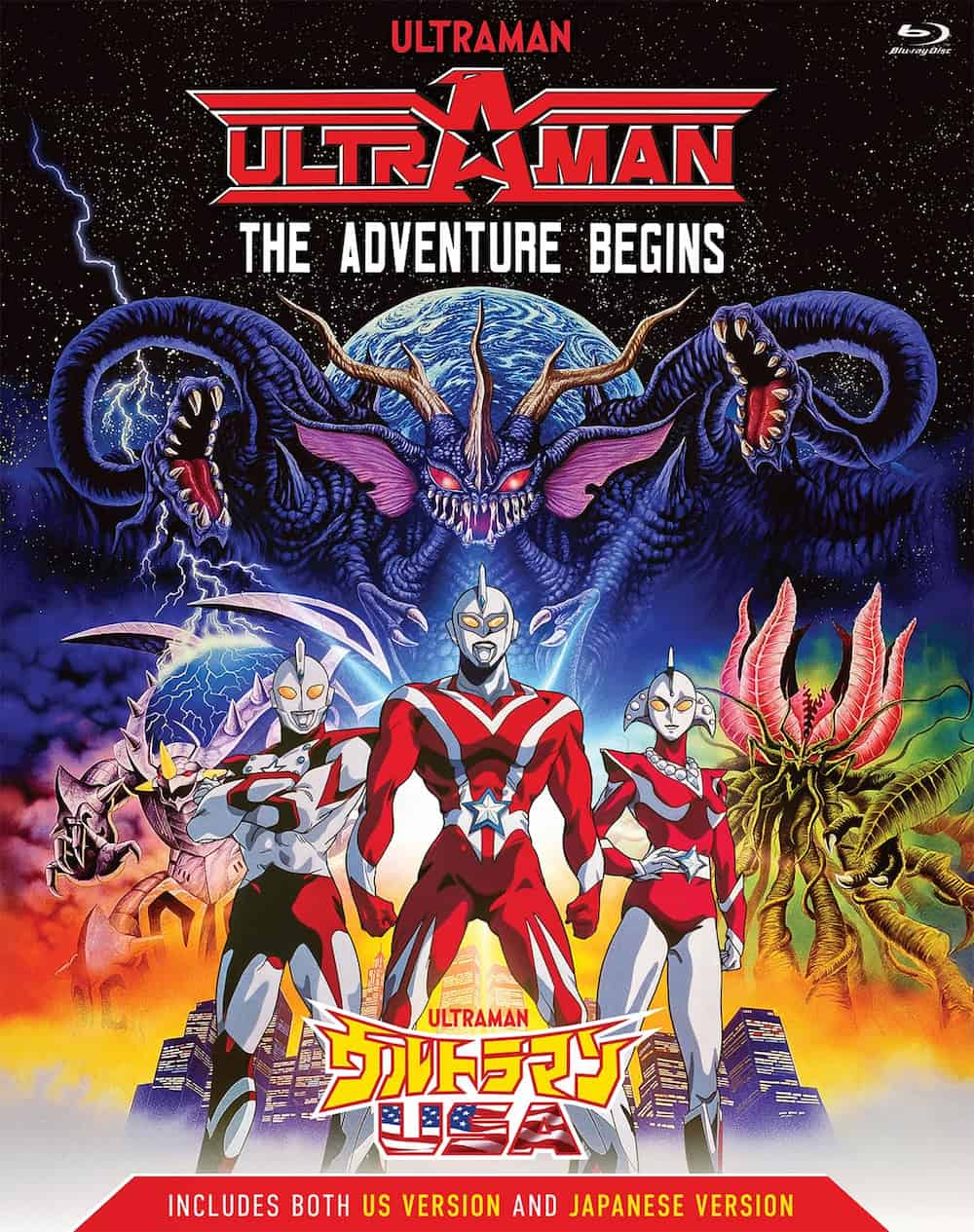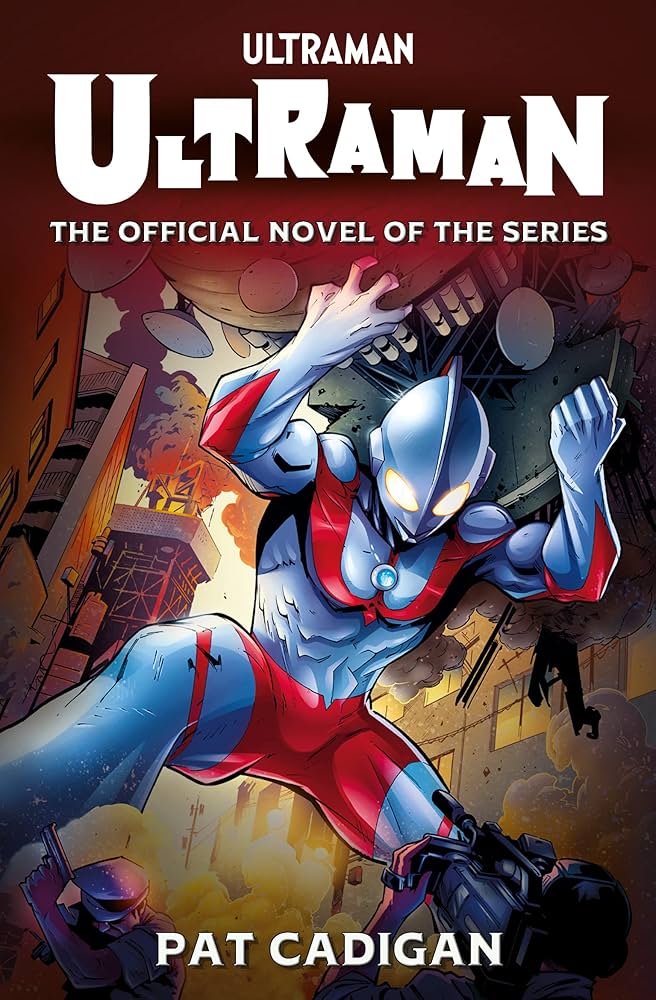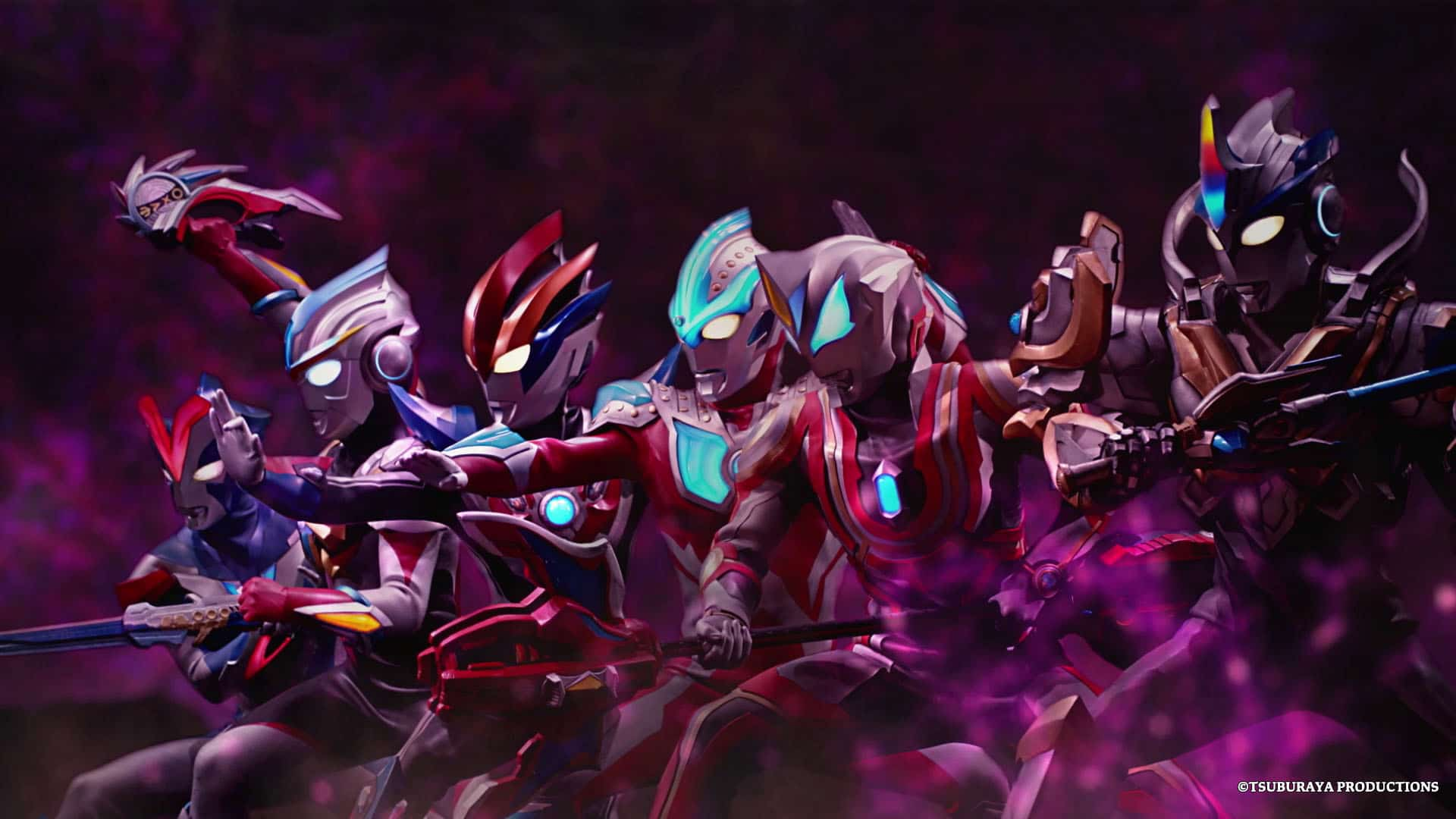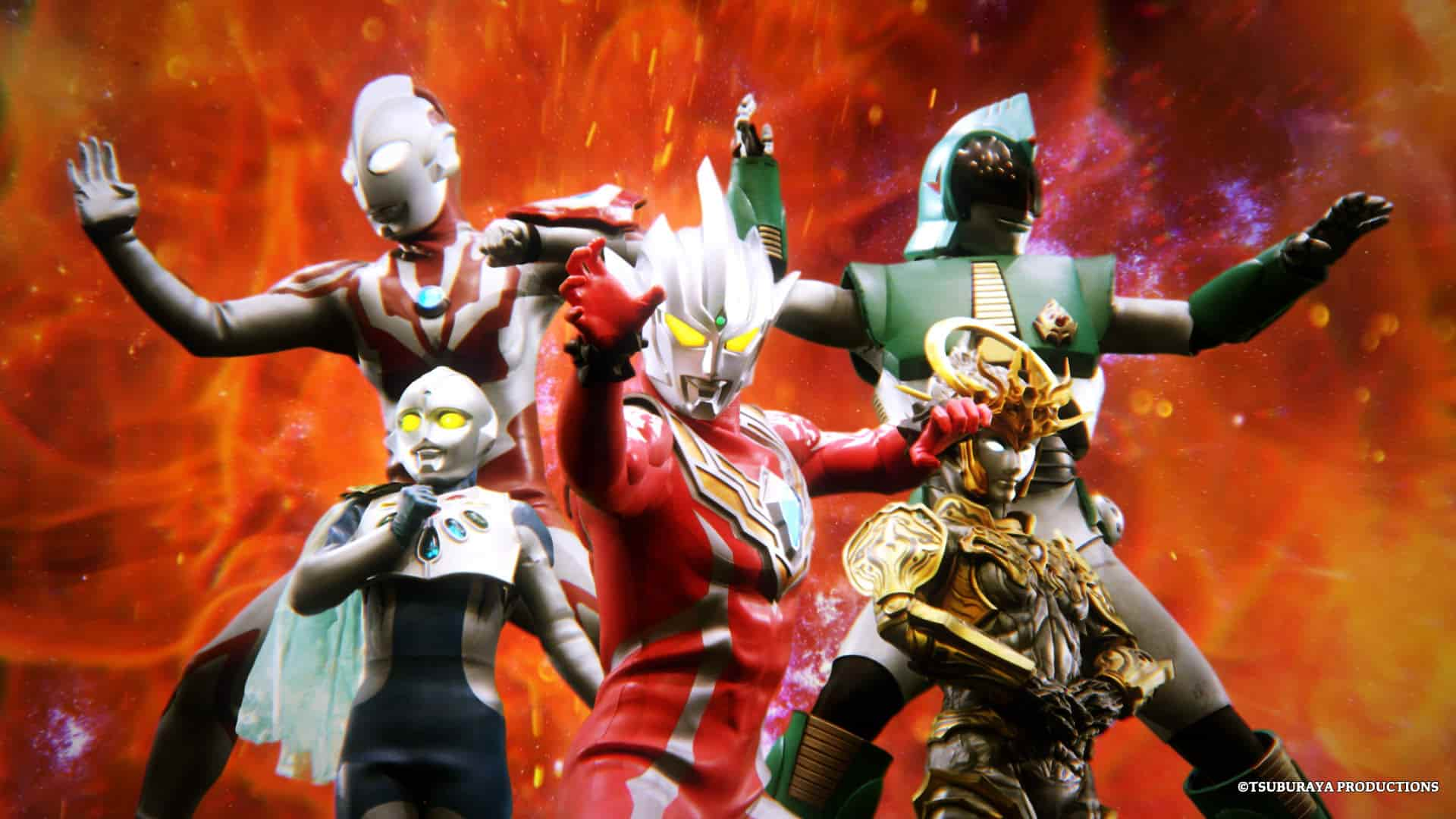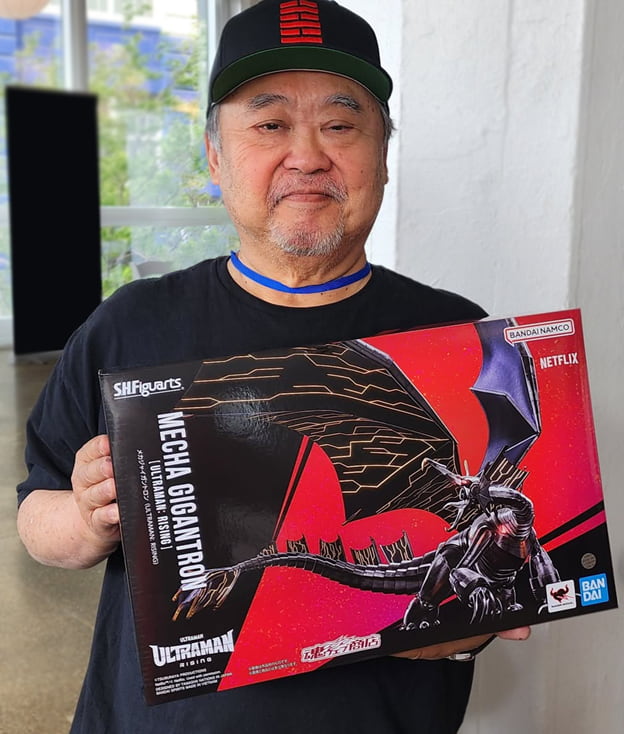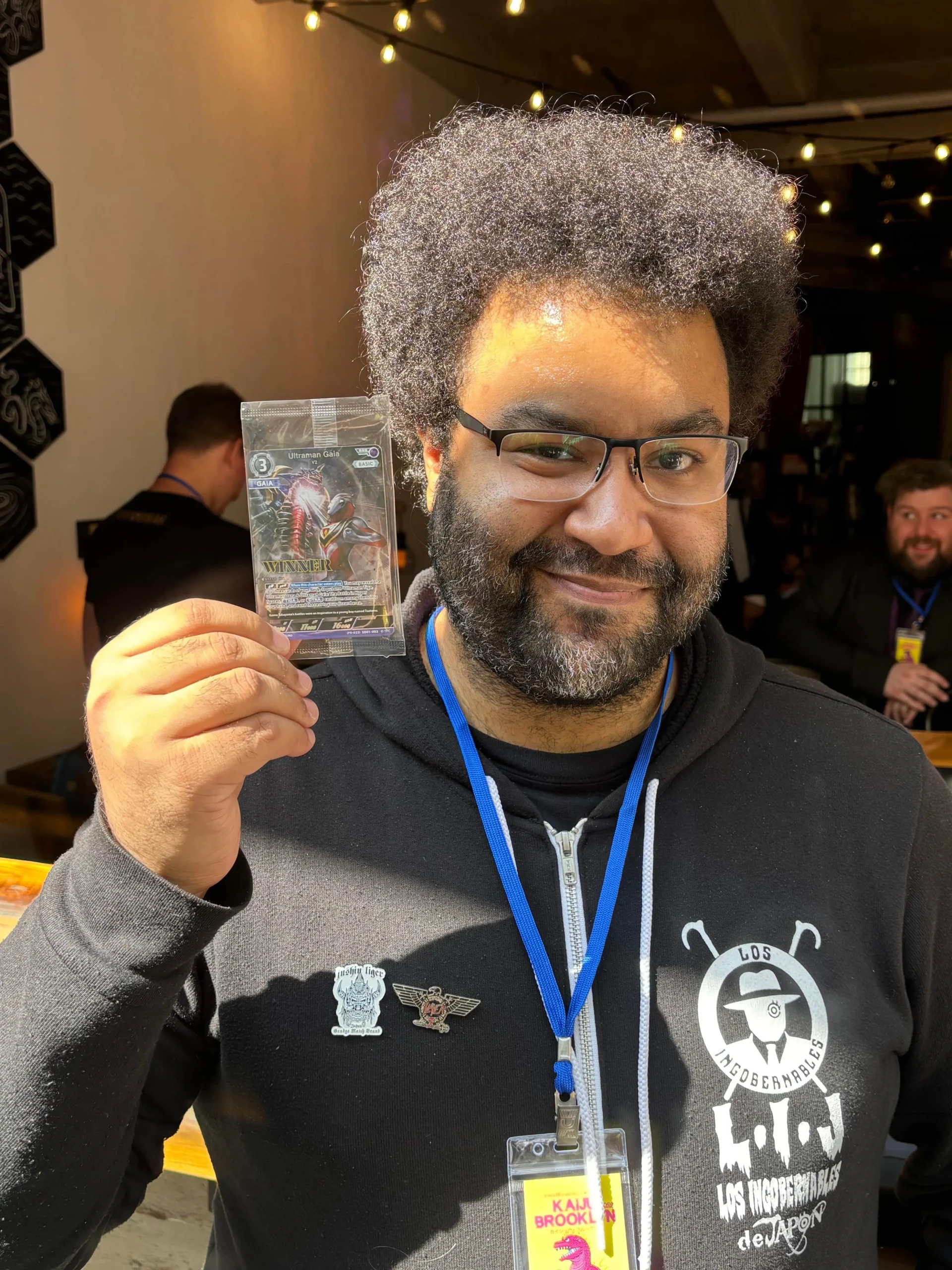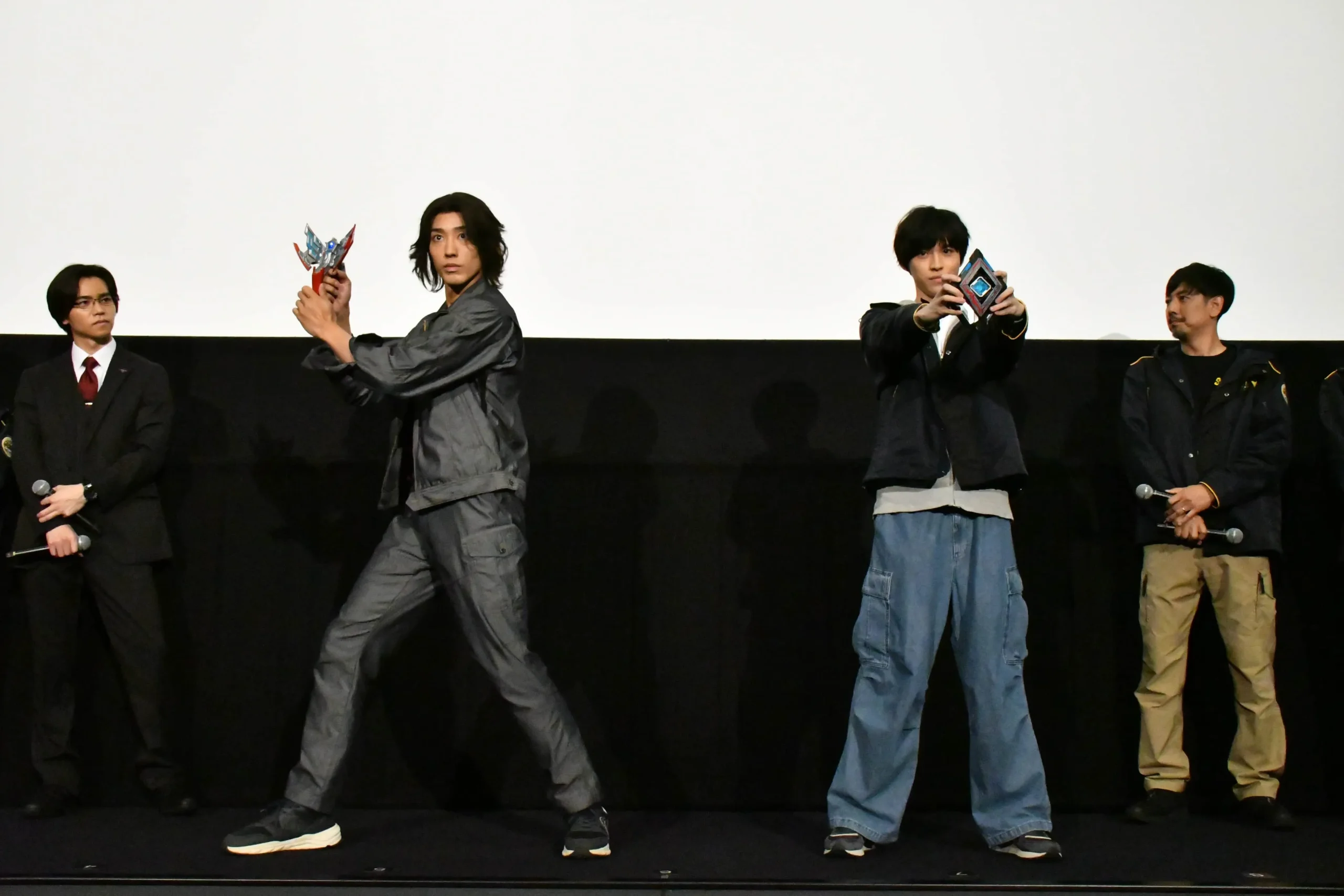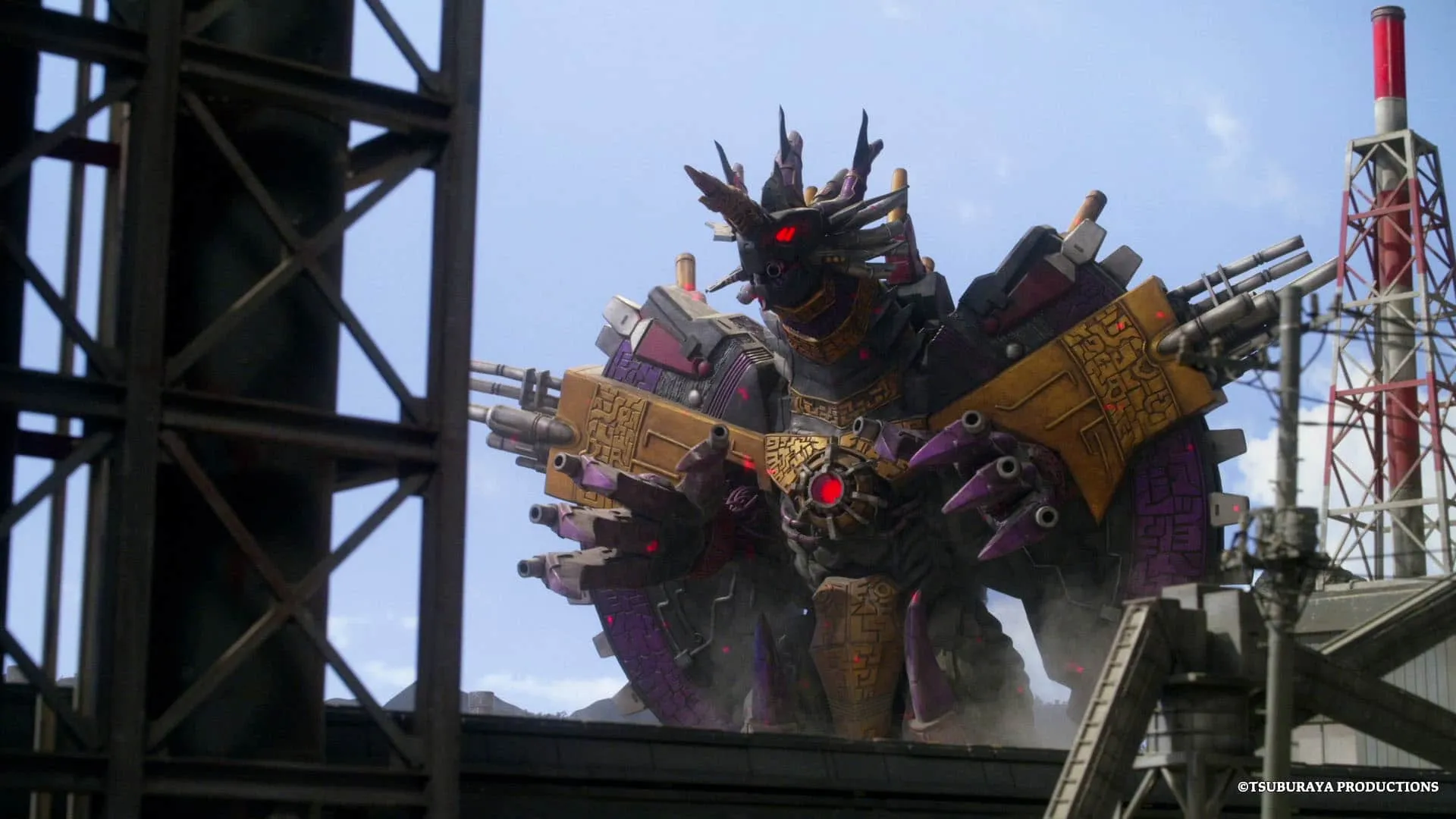EJ
Hey folks, and welcome back to Ultraman Connection’s Watch Club! I’m EJ Couloucoundis, editor-in-chief of Ultraman Connection.
SL
And I’m Sarah Last, content creator, staff writer, etc etc, yadda yadda yadda, let’s get to the episode.
EJ
Saraaaaaah. It’s here, finally, it’s here. I think this is probably our favorite episode of Ultraseven, and maybe the single best episode in the whole Ultraman series? “The Targeted Town is just kind of legendary.
SL
“Legendary” is a word to describe it. “Iconic” is another. There’s so much about the tone and visual style of this episode which has gone on to define not just Ultraseven, but also the franchise as a whole.
EJ
Absolutely, and beyond even the visuals, the story is the one I always find myself thinking back to. It’s one of those episodes that you really can’t rate lower than a ten out of ten. I almost regret reviewing it, just because there’s that fear that me telling you about it might keep you from watching it.
SL
I, for one, can confidently state that nothing we could say here in our discussion replaces the actual experience of watching this one for yourself. If you’re reading this and haven’t gotten to this point in the show, or haven’t picked up Ultraseven yet, close this tab and go fix that. Right now. We’ll wait.
…Okay, are we back? Good.
EJ
Something that always surprises me when I go back to Ultraseven is just how much on-the-ground action the series has. Part of that is obviously because the primary threats are usually aliens instead of kaiju, but it’s moments like the start that remind me how scary things can still be at human sizes. In the town of Kitagawa, we start in the middle of…
Well, actually, let’s also say here: Content Warning for Adult Situations.
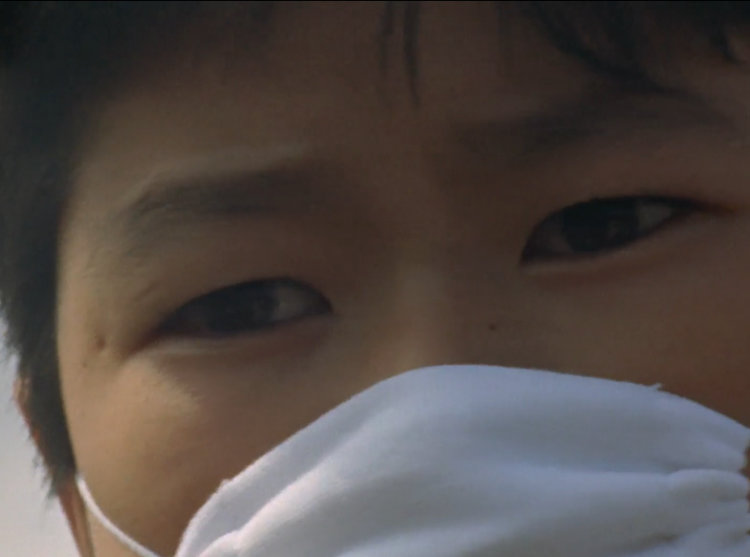
SL
Some other episodes to this point, like “The Dark Zone”, or “Space Prisoner 303”, have dealt with scary or dark circumstances, but this story is different because the crises portrayed throughout the episode hit… uncomfortably close to home.
It’s tough to watch the very first scene of this episode and not read it as some kind of domestic abuse incident. Even that sounds disturbingly clinical, as the audience watches a woman crying, in absolute terror and distress, try to flee from a man attacking her in a violent rage, through a muddy lumber yard.
“Clinical” I think is actually what the director, acclaimed auteur Akio Jissoji, was probably going for, considering the perspective of the camera throughout this scene.
EJ
God, I could talk about Jissoji’s work for ages, but if we did that, we’d never get to actually talk about this episode. Nevertheless, Jissoji was known, in Ultraman and beyond, for blending deeply unsettling and psychedelic visuals and storytelling decisions into his work, as well as realistic human emotion.
His other best known episode, Ultraman’s “My Home is Earth” is another contender for best episode in the entire series, and is an utterly gut-wrenching heartbreaker focusing on loyalty to one’s country, the loss of humanity, and the lives lost on the road to progress.
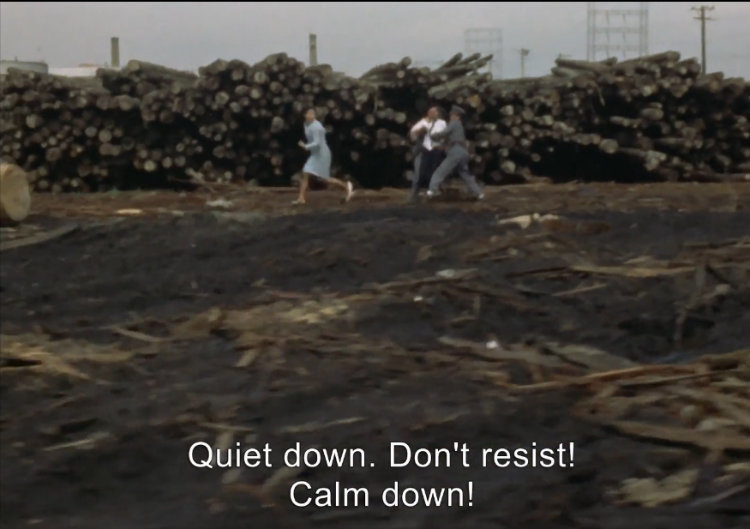
Going back to this heartbreaker of an episode, however, the shocking violence of the opening ends as the police catch up to the mad pursuer, pinning him down just in time for him to immediately die of a heart attack. All of this, of course, was watched not just by the children at home, but by children at the scene, unable to look away.
SL
It’s clear that the kids don’t quite get what’s going on though. They treat it as some sort of show, entertainment to watch adults run around and act in bizarre ways.
EJ
And that in itself is almost as horrifying as the scene of violence we just witnessed. In modern America, where we are right now, this scene is disgustingly familiar. How many children have grown up inured to violence and tragedy just from overexposure at this point?
SL
The movement from the perspective of the kids, disappointed that the show is over, to yet another crisis that follows on its heels, which now involves one of them directly, also pulls the audience into the same viewpoint. The previous scene was shot from a distance, watching the chase from a wide angle. But as soon as Anne pulls up in the Pointer to deliver the worst news possible to the young boy, Hiroshi, the camera zooms in close, so we can get a good look at the tragedy she is now also personally involved in.
The visual message is clear — the audience is also responsible and accountable for this kind of bystander effect. The rest of the episode will continually hammer this idea of perspective — of being a bystander, an outsider — in further as the story progresses.
EJ
The bystander effect is fully present during the funeral for the child, Hiroshi’s father, a pilot who went down with his plane — or perhaps took it down into a nosedive in a fit of madness. Guests mourn his loss, claiming he was the best civilian pilot in the country, but the fact that he took 130 passengers with him is barely a throwaway line. They’re a statistic, little more.
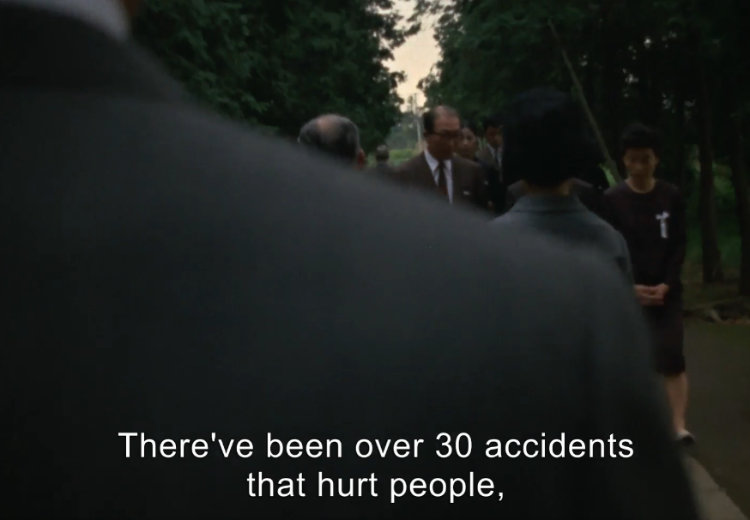
Furthermore, the scope of these recurring tragedies is much larger than it first appears: Kitagawa seems to have been the home of countless such horrors in the past few weeks. A train crash, a tanker explosion, literal dozens of accidents — just throwaway things, recounted by people who barely seem to care.
SL
I know you said that we’d be here all day if we talked about Jissoji’s direction in this episode but can I just say how perfectly everything in this scene is framed and blocked out? You have exposition for the full scope of this epidemic of irrational, suicidal violence. Then, as the camera tracks through the lines of gossiping mourners and well-wishers, just over the shoulder of one individual in particular, he turns around to reveal Dan Moroboshi himself.
Imagine, already being an alien among humanity here on the Earth, and now trying to figure out his way through the complex and unspoken rituals of a funeral, both religious and spiritual but also from societal cues and expectations that are completely alien to him. He doesn’t know what’s going on, but all this is probably depressingly familiar to anyone who has gone to a wake or a funeral service for someone you only half-knew as a distant relative or friend-of-a-friend.
I don’t know, maybe I’ve just been to too many funerals. See, now I’m starting to get depressed just talking about this! It’s that good at sucking the audience into that sort of mindset and point of view.
EJ
This whole episode is kind of depressing, to be honest. That’s one of its strongest elements to me. Ultraman material is meant to be uplifting, hopeful, and this episode just… really isn’t. It stands in contrast to so many other episodes of the series; and yet, it’s one of, if not the most effective episode of the entire 56-year run of the show. It’s an episode that forces Ultraseven to face the reality of the humanity he loves so much, and asks him if they’re worth protecting, despite the horrendous callousness of what is frankly a fairly accurate microcosm of general human society, even to this day.
And he still does. That’s why this works so well; it’s a deconstruction of everything the Ultraman Series is, and one that is fully willing to reconstruct it the moment it has asked the hard questions.
SL
Well, at this point in the episode, there’s still a lot of unknown factors around these incidents. The Ultra Guard interrogate a man who was disarmed and captured after stealing a rifle and using it to randomly fire at people on the street — another disturbingly familiar incident for American audiences watching nowadays — and seems to have no recollection of the attack.
The seemingly random nature of these outbreaks is honestly the scariest part. The people involved in the attacks are all otherwise normal individuals: neighbors and siblings and fathers, people you would meet at work or in line for a coffee at a store. There seems to be no pattern to them, no reason for why they would suddenly try to kill everyone around them.
Until the Ultra Guard’s investigation turns up a surprising detail…
EJ
At the same time… why wouldn’t it be random? Yes, everyone has their own reasons for doing this, but the Ultra Guard is desperate for a pattern here. They almost don’t find one. Thankfully, the criminal behind what could have been a mass shooting had it not been for the intervention of the Ultra Guard reveals that he had picked up some cigarettes from a vending machine right before he had lost all reason. This doesn’t tip them off yet, but ties into figuring out the eventual culprit.
Side note, this entire sequence, from the UG’s top brass discussing the incident to the interrogation itself, has some insane cinematography and setting details. This is Jissoji at his most Jissoji.
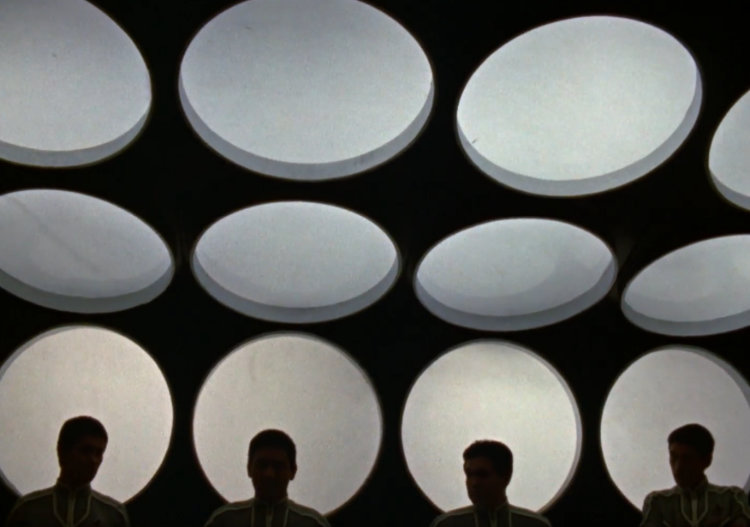
SL
I wouldn’t say that, not when the Ultraman Dyna episode, “Monster Drama” exists. But yes, one of his biggest strengths as a director is using the camera in very deliberate ways to force the audience into a specific mood or point-of-view. The lighting work here — harsh and backlit — really helps to emphasize the dehumanization of individuals by obscuring their faces.
EJ
Man, I forgot “Monster Drama.” Bundar, man oh man. ANYWAY!
Dan goes to check it out, only to wind up in a scene right out of the Stephen King story Christine, with a gigantic truck trying to drive him off the road and crush him! And just like Christine, when Dan stops it and checks the cab, there’s nobody driving… I don’t think this truck is necessarily possessed, though. Some alien entity is controlling it, however, since the empty cab gives Dan a warning: Stop interfering, or you won’t live to see tomorrow. They claim that they could do it now, but, well… barbarism is reserved for humans, not aliens.
SL
Since when has Dan ever listened to reason, though? And why would he start now?
EJ
I’d be frankly insulted if he did, this time.
SL
Meanwhile, the violent incidents start hitting even closer to home with the Ultra Guard. While Anne became involved — alerting the Ultra Guard to these events — because of her family’s ties to Kitagawa, their investigation of the town leads to violent events within the base.
That is, after smoking a cigarette that they bought from a vending machine outside, Furahashi draws his own side-arm and attacks the rest of the crew!
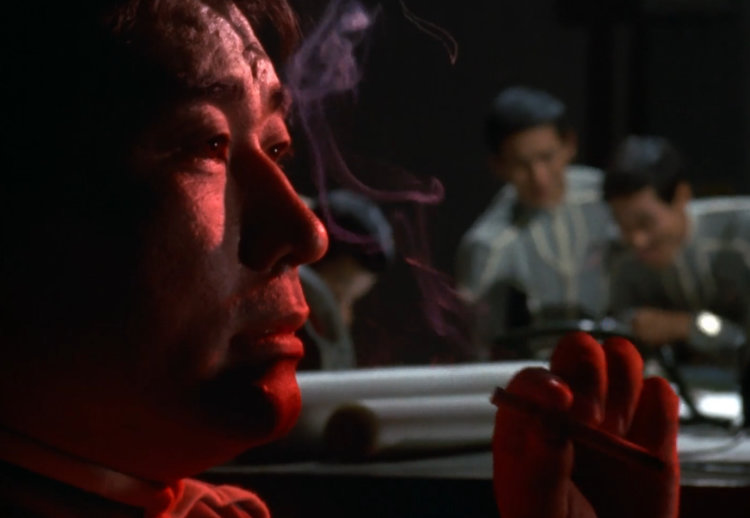
I’m sure there’s something about the chain of custody for evidence that says you’re not supposed to light them up. I’m only making jokes here though because watching the normally good-natured and easy-going Furahashi go dead calm, then make a deliberate decision to attack his friends is terrifying to watch.
EJ
Yeah, the entire tone of the episode goes from scary to outright harrowing at this moment. Even with the intended comedy of Amagi smacking him on the head with the rolled-up map, it really just reads like the team is powerless to actually stop Furuhashi’s rampage.
SL
Thankfully, they’re more prepared when Soga immediately makes the same mistake and also tries to kill everyone else in the room.
Guys. Guys, please have some basic pattern recognition skills here.
EJ
Hadn’t they been looking for the cigarettes that make you crazy and violent? This was information already in the record.
In general, don’t smoke indoors folks. Don’t smoke at all, if you can help it. This isn’t supposed to be an anti-smoking PSA, but when I saw this episode as a kid I never wanted to touch a cigarette in my life.
SL
On a more humorous note, whenever this plot gets revisited or paid homage in later shows, they pick something else more relevant to modern society and its tastes that would pass under the radar. Like cell phone signals. Or idol pop concerts with light sticks.
Anyways, speaking of plots, this horrifying sequence of events finally tips Dan off to the culprit behind the attacks — whoever is filling the cigarette vending machine in town. He and Anne immediately take off to corner them after staking out the spot and waiting for the truck to make a delivery.
EJ
“Space Opium Poppies,” the alien compound that the cigarettes are filled with, cause you to see everyone around you as an enemy. It’s pretty insidious, and one of the few direct references to drugs that the series makes.
Also, geez, that statistic they just throw out: half of humanity smokes cigarettes. What were we doing in 1967?
Anyway, following the culprit’s van, Dan and Anne end up in a pretty dilapidated part of town — this episode especially shows a lot of actual locations, doesn’t it? The lumber yard, the train station, this old street. There’s a lot of period-relevant architecture that really sets the scene here. And when Dan actually walks into the building the culprit has been hiding out and sees an alien sitting calmly at a table, waiting for him — well, that’s up there with the most famous single images in the entire history of Ultraman, no?
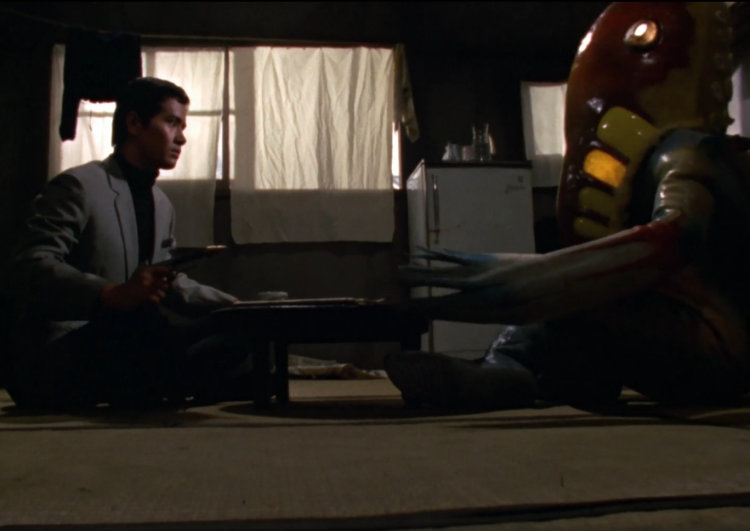
SL
Let’s just say that I’m playing Ultra Kaiju Monster Rancher right now, and if you have a Metron, then one of their special attacks is literally talking to your opponent over a tea table.
On a serious note, this is really where the continually-emphasized theme of distance from tragedy, of being an outsider or an observer versus being directly involved in the tragedies in their full horror, comes into full focus. The Metron prides himself on detachment, to be a scientific and pragmatic observer of humanity, and judge them rationally based on his “experiment”.
Dan, of course, is horrified at the violence they’ve enabled, but he’s not exactly an impartial judge of character himself, even though he is also an alien! The Metron — and other aliens we’ll encounter later in the show — are just befuddled and slightly amused at how concerned he is about humanity.
After all, regardless of what happens next, the Metron has won! He’s proved his point: the only thing restraining individual humans from degrading into barbaric, self-destructive violence is a casual veneer of assumed trust between those individuals in society. Why would Dan, Ultraseven, want to protect such creatures?
EJ
It’s a hard question to answer. Luckily, Dan doesn’t really need to answer; he’s made his choice. And so, the trap is sprung; in the dusky rays of sunset, the building splits open to reveal the Metron ship, rising into the air with Dan on it! Anne quickly calls for the Ultra Guard to engage, to free Dan, and a dogfight occurs between the two splitting ships.
The half of the ship holding Dan is shot down, and Dan bursts from it as Ultraseven, leading to another legendary shot — Ultraseven vs. Metron in front of the setting sun.
SL
The color red is an important recurring visual motif in this episode. It might bring to mind the old cliche about red flags enraging a bull, since the lighting used for the violent rampages earlier were also shot under a red filter.
But here, in this final showdown between two opposing, yet unyielding perspectives on humanity, the red of the sunset almost becomes… beautiful, really.
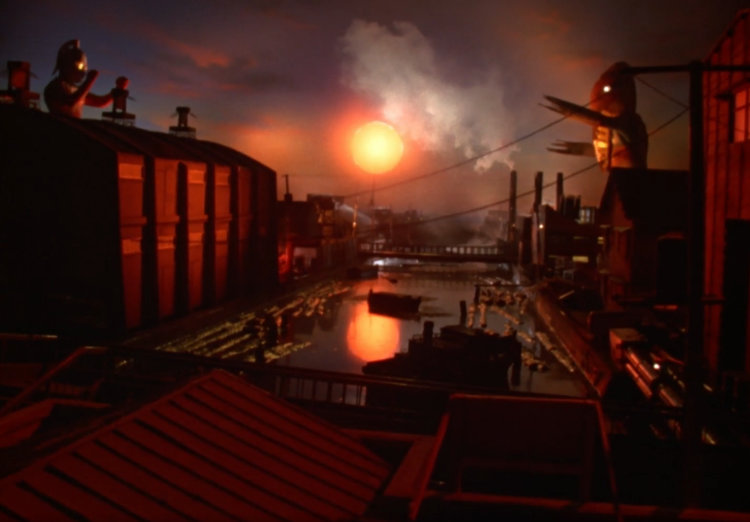
Like the Metron claimed, the battle is already over. There is nothing left to do, nothing left to test or evaluate or prove. They have both made their point, and the fact that the Metron and Ultraseven both are reduced to violence to determine the outcome of their opposing views of humanity seems like only an unfortunate requirement from the conventions of this genre.
EJ
The battle is short, too. Shorter than I remembered. One clash, and then the Metron tries to run before Dan bisects him from behind with the Eye Slugger. The plot ends, but the narrator offers a stern warning about the alien’s plan to damage humanity’s trust.
Not to worry, however. Humanity would have to trust each other in the first place for that to happen.
O O F.
SL
That line.
That freaking line. That’s just a low blow. Jissoji and the other individuals who worked on this show knew how that line would sound to the adults watching. They knew how hollowly it would echo with the final stings of the Ultraseven theme.
Ultraseven was one of the first series in the franchise I watched to completion. I distinctly remember watching this episode for the first time, then just sitting back on my couch and thinking. “Ah. I get it now. This is why Ultraman is important.”
EJ
Jissoji will deliver two more fantastic episodes by the end of the series, but this story is just a world apart. That line pulling every other incredible element of the episode together is what makes this just about perfect.
SL
I am not exaggerating even slightly when I say this is my single favorite episode of the entire franchise.
EJ
Don’t take that to mean that next episode is a letdown, though. We’ll see you next week, when we take a look at Ultraseven Episode 9, “Android Zero Directive!”
